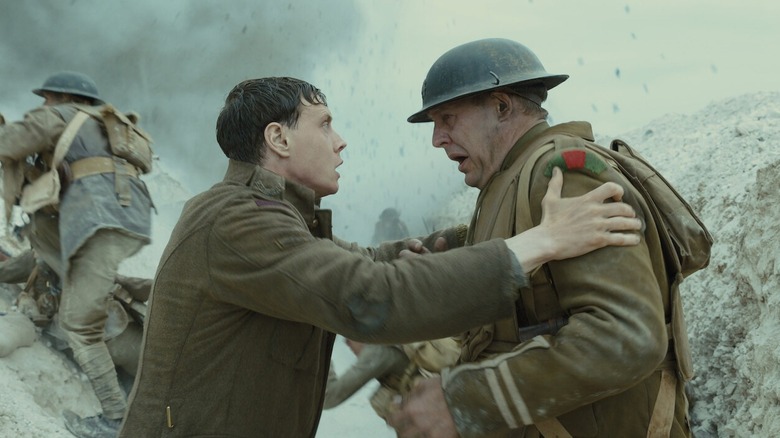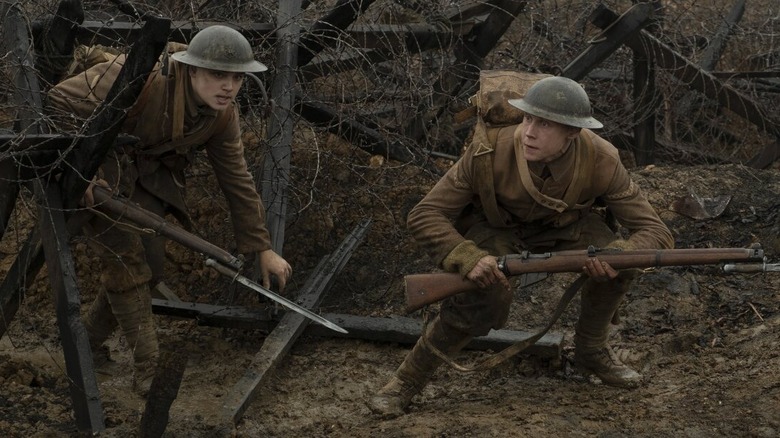How Sam Mendes' Grandfather Helped Inspire 1917's Story
I still remember not being able to remove myself from my seat after seeing "1917" in theaters for the first time. I felt a mixture of overwhelming exhaustion and awe over the story Sam Mendes had laid out for us in nearly real-time. I had also gone into the film relatively ignorant about Mendes beyond the handful of films I'd seen by him — including his two James Bond films. I also remember seeing a dedication at the end of the film for a man with the same last name as the director.
So I wasn't entirely surprised to discover that Alfred Mendes, the name that flashes across the screen, was the director's late grandfather. What did surprise me was finding out that the plot of "1917" took direct inspiration from his time serving in the first world war. At its core, the film is a brutalizing lesson in the realities of trench warfare, telling a story about the men tasked with navigating its deadly landscapes. That's something Alfred understood intimately well. Luckily he chose to share those stories — for the benefit of movie lovers everywhere, little did he know — with his grandson.
Sam's grandfather was a WWI messenger
"1917" follows the harrowing journey of two British soldiers in a quest to deliver a message that might save the lives of 1,600 men. The two soldiers, played by George MacKay and Dean-Charles Chapman, face a task that the director's grandfather was only too familiar with. Sam Mendes told The Washington Post about his fond memories of Alfred Mendes, who spent his life deflecting pestering questions from his grandchildren about his tales:
"He told one particular story about carrying a message in no man's land between post to post at dusk, in the mist, and that image of him, that little man alone in that vast emptiness, stuck with me. And when I came to have the courage to sit down and write my own script, that was the story I felt compelled to tell."
Alfred Mendes, who was a Portuguese immigrant from Trinidad, served as a messenger on the western front during WWI. It's no accident that "1917" follows its two messengers with phenomenal long takes which look, excruciatingly, at the horrors involved with traveling even short distances in the war. In a Q&A at the Director's Guild of America, Sam revealed one of the reasons Alfred so successfully eluded enemy soldiers: his short stature often submerged him beneath the six-foot winter mists that covered no-man's-land. Still, that didn't mean his job was any easier — or any less dangerous.
Portraying the grueling nature of seemingly simple tasks like carrying messages was clearly a focal point for the film, and Mendes' reason for making it. Not only does it honor his grandfather's bravery, but also the bravery of every soldier caught in the conflict. It feels odd to call a film about war — with such potent and brutal images strewn throughout — beautiful, but that's exactly what the human element of this film evokes. And that's owed to how much Mendes cherishes his grandfather's memory.

